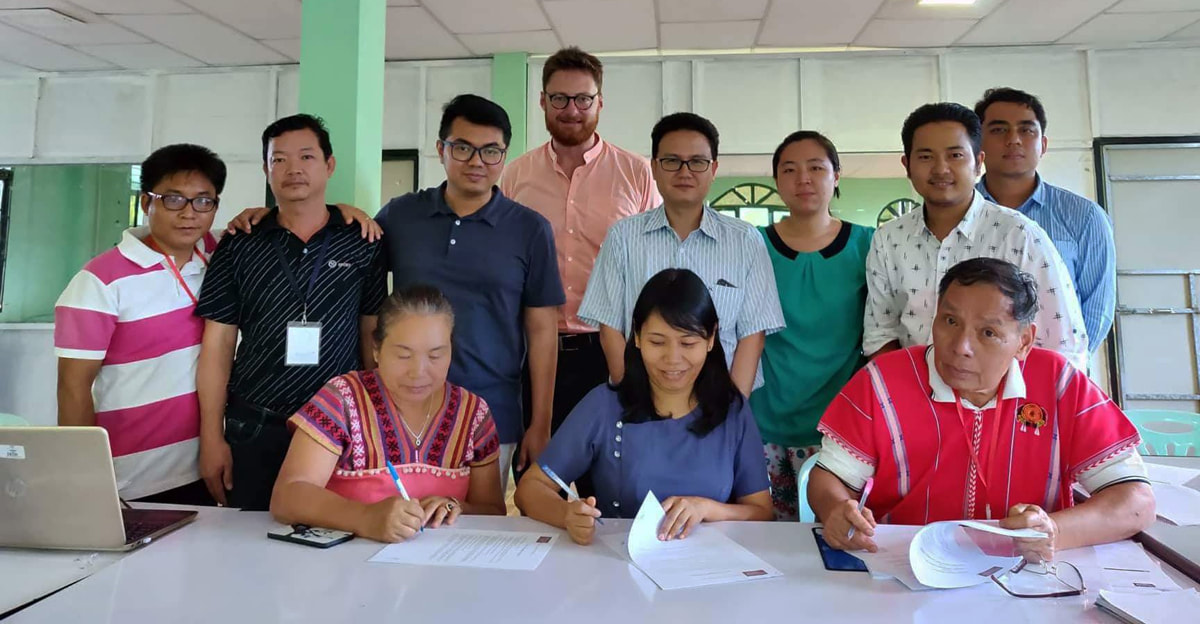|
As Myanmar’s health system evolves and health providers work towards the achievement of Universal Health Coverage by 2030, securing adequate financing remains an enduring challenge. This is particularly true for ethnic health organizations that, despite providing the first line of health services to hundreds of thousands of people in conflict-affected, hard-to-reach and under-served areas of Myanmar, have not received to date any direct financing from the Government of Myanmar. Community Partners International (CPI) is working with two ethnic health organizations in Southeastern Myanmar on a pilot project to model a new approach to health financing in Myanmar: Strategic Purchasing of health services. The intention for this pilot is to inform and guide future financing agreements, and help ethnic health service providers to secure broad, reliable and long-term financing sources to support their lifesaving work. On June 23 and 24, 2018, representatives of CPI, the Karen Department of Health and Welfare (KDHW) and the Health Department of the Border Guard Force (HD-BGF) met in Hpa-An to sign the contract for the Strategic Purchasing pilot project. This is the first ever project of its kind with ethnic health organizations in Myanmar. Under this innovative pilot, CPI will invest in a package of primary and public health services to be provided to approximately 10,000 people living in communities around four clinics in Southeastern Myanmar operated by KDHW and HD-BGF. KDHW and HD-BGF will provide the services, organize the logistics and undertake monitoring. From this monitoring, combined with service level data and additional on-site verification, CPI will generate the evidence to evaluate whether the services have been delivered as agreed in the contract.
This model of strategic purchasing gives ethnic health organizations significantly more autonomy than under more traditional granting mechanisms. It empowers them to deploy funds and resources flexibly, and to adjust their approach as the context changes, so that they can achieve service delivery objectives efficiently and effectively. It encourages better integration between ethnic health providers in resource-constrained and hard-to-reach contexts. With more decision-making power over how funds are used, they can work together to holistically identify needs and priorities, and coordinate the delivery of health services to best meet community needs. It also generates evidence of the return on investment for both ethnic health providers and donors. The data gathered during implementation monitoring will provide detailed insight into the positive impact on health outcomes achieved with each investment. This evidence will inform more rational, justified, and efficient decisions on spending, resource allocation and health systems strengthening. What's more, it's scalable. The Myanmar government expressly included the intention to purchase services from ethnic health organizations in the National Health Plan, 2017-2021. Understanding how purchasing from EHOs can work, including the challenges and opportunities it presents, can (and should) feed directly into national health policy. If successful, the project can provide a blueprint for future financing agreements between ethnic health providers and the Government of Myanmar. This would represent an important step forward in aligning health services and systems while maintaining the autonomy of ethnic health providers, and active cooperation between these stakeholders, all of which will be crucial in the shared goal to achieve health for all in Myanmar. As this Strategic Purchasing pilot project moves forward, CPI will be producing regular Learning Briefs and hosting seminars to inform and engage interested parties with progress and lessons learned. This initiative is funded as part of CPI's 'Better Health Together' project supported by the Swiss Agency for Development & Cooperation (SDC) and the Three Millennium Development Goal (3MDG) Fund. Comments are closed.
|
AuthorCPI Admin Archives
July 2024
Categories
All
|
|
|
COMMUNITY PARTNERS INTERNATIONAL
580 California St Fl 16, Ste 1658, San Francisco, CA 94104-1068, USA [email protected] +1 510 225 9676 We are a registered nonprofit 501(c)(3) Public Charity. TAX ID 94-3375666 |
©
Community Partners International


 RSS Feed
RSS Feed
